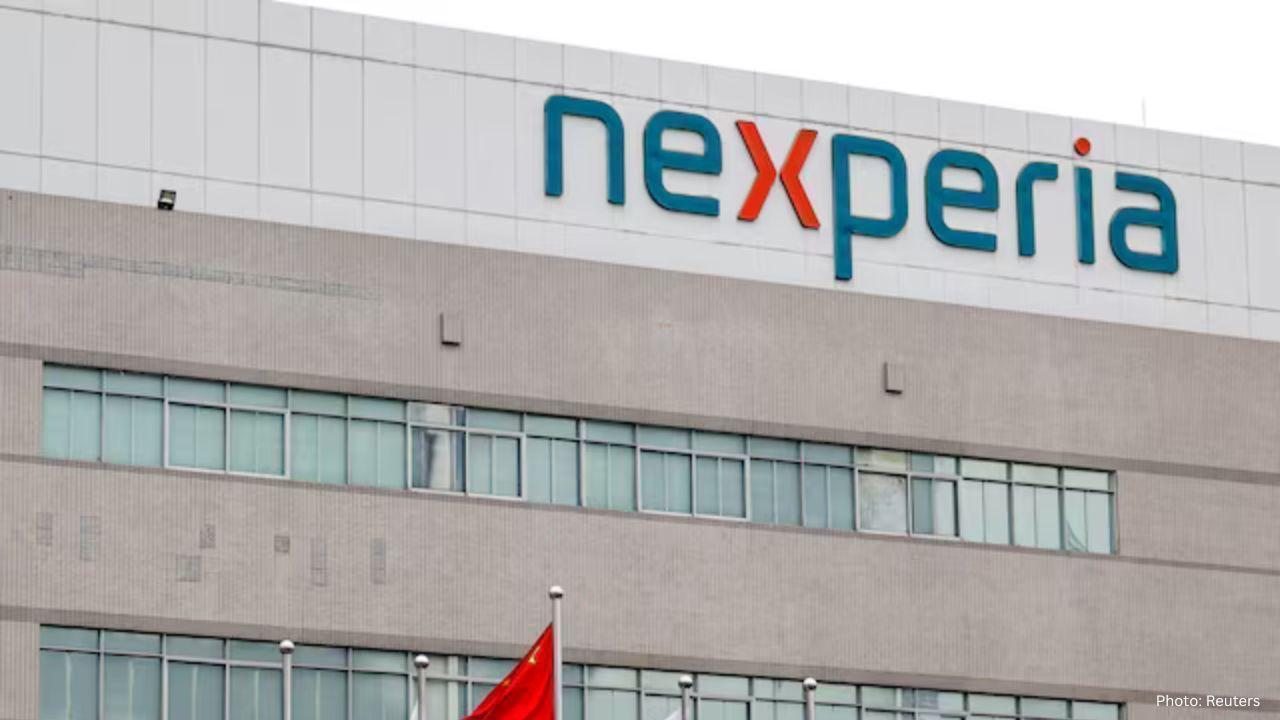You have not yet added any article to your bookmarks!

Join 10k+ people to get notified about new posts, news and tips.
Do not worry we don't spam!

Post by : Anis Farhan
The healthcare sector is no stranger to change, but the pace of innovation in 2025 is unlike anything seen before. For decades, medicine has evolved incrementally, with new drugs, technologies, and treatments improving patient outcomes step by step. But now, the convergence of artificial intelligence, biotechnology, data analytics, and digital platforms is accelerating progress at an unprecedented rate.
This year marks a decisive shift where healthcare is becoming smarter, more personalized, and globally interconnected. AI diagnostics are achieving near-human accuracy, precision medicine is offering treatments tailored to an individual’s genetic makeup, and digital technologies are breaking down barriers of distance and access.
The healthcare landscape of 2025 is one where prevention, prediction, and personalization dominate the agenda. Let’s explore the most influential healthcare trends shaping the present and defining the future.
Artificial intelligence has become one of the most transformative forces in healthcare. In 2025, AI-driven diagnostic systems are achieving accuracy levels once thought impossible.
Medical Imaging: AI algorithms now detect cancer, fractures, and cardiovascular disease from scans with accuracy rates above 98%.
Pathology: Automated tools analyze blood and tissue samples faster than humans, cutting lab times drastically.
Primary Care: Chatbot-style systems are increasingly capable of handling basic diagnostics and triage, guiding patients to appropriate care.
The key breakthrough this year has been the integration of multimodal AI—systems that combine imaging, genetics, and patient history—delivering comprehensive diagnostic insights in minutes.
While AI enhances detection, precision medicine ensures that treatments are uniquely tailored. In 2025, precision medicine is no longer limited to cutting-edge cancer trials; it is entering mainstream healthcare.
Genomic Sequencing: Costs of genome analysis have fallen, making genetic testing accessible to middle-class patients worldwide.
Targeted Therapies: Drugs are now prescribed based on a patient’s genetic profile, ensuring better outcomes and fewer side effects.
Preventive Care: Genetic predispositions to diabetes, cardiovascular disease, or Alzheimer’s are being identified early, enabling proactive interventions.
This shift from a “one-size-fits-all” model to personalized healthcare is reducing treatment failures and saving costs in the long run.
The pandemic made telemedicine a household concept, but 2025 has elevated it into a comprehensive digital healthcare ecosystem.
Virtual Hospitals: Entire hospitals now operate online, offering consultations, prescriptions, and even remote monitoring through wearable devices.
Cross-Border Care: Patients in rural or underdeveloped regions can access top specialists globally without leaving their homes.
Integrated Wearables: Devices tracking blood sugar, heart rhythms, and sleep patterns are linked directly to doctors, ensuring round-the-clock monitoring.
This evolution is not just about convenience—it’s about access. Millions who previously lacked adequate healthcare are now part of a connected system.
The biotech sector is booming in 2025, driving some of the most exciting healthcare innovations.
CRISPR Advancements: Gene-editing technology has progressed from research to clinical trials for conditions like sickle cell anemia and certain cancers.
Regenerative Medicine: Lab-grown organs and tissues are becoming viable options for transplant patients.
Cell and Gene Therapies: These once-experimental approaches are increasingly approved by regulators for rare diseases, expanding patient access.
Biotechnology is pushing the boundaries of what is medically possible, offering hope for previously incurable conditions.
Another breakthrough area is the use of AI to accelerate drug discovery. Traditionally, developing a new drug could take 10–15 years. In 2025, AI-driven platforms are shortening this timeline dramatically.
Molecule Design: AI predicts which compounds are most likely to succeed in trials.
Simulation Models: Virtual models of human biology reduce the need for animal testing.
Cost Reduction: Faster drug development means lower costs and quicker delivery to patients.
This not only accelerates treatments for emerging diseases but also makes medicines more affordable.
2025 is also the year where mental health has become a central pillar of healthcare. After decades of neglect, the stigma around mental health has eased, and technology has provided new tools for diagnosis and support.
AI Therapy Bots: Virtual assistants provide real-time counseling, supplementing traditional therapy.
Data-Driven Insights: Wearables monitor stress levels, helping individuals manage anxiety and depression.
Employer Initiatives: Workplaces are investing in comprehensive mental health programs to improve productivity and well-being.
This shift reflects a recognition that mental health is inseparable from physical health.
Hospitals in 2025 are evolving into smart ecosystems where automation and robotics streamline operations.
Robotic Surgery: AI-guided robotic systems perform complex surgeries with precision and reduced recovery times.
Automated Administration: AI-powered systems reduce paperwork, freeing doctors to spend more time with patients.
Digital Twins: Virtual models of patients help doctors simulate treatment outcomes before administering therapies.
Smart hospitals are redefining efficiency, safety, and patient experience.
Perhaps the most important trend is the global focus on equity in healthcare. Advances in technology mean little if they are limited to wealthy nations.
Affordable Tech: Portable diagnostic devices are reaching rural areas.
Cross-Nation Collaborations: Governments are pooling resources to tackle pandemics and chronic diseases.
NGO Partnerships: Nonprofits are working with tech companies to deliver life-saving innovations to underserved populations.
Equity ensures that breakthroughs benefit humanity at large, not just privileged segments.
2025 has also seen a shift toward sustainable healthcare systems. Hospitals and pharmaceutical companies are under pressure to reduce their carbon footprints.
Eco-Friendly Hospitals: Solar-powered facilities and waste reduction systems are gaining traction.
Green Supply Chains: Pharma companies are adopting sustainable production methods.
Climate-Health Nexus: There is growing awareness of how climate change directly impacts public health, driving new initiatives.
This intersection of environment and healthcare reflects a broader recognition of the planetary health paradigm.
Healthcare in 2025 is at the cusp of a new era. From AI diagnostics that deliver near-perfect accuracy to precision medicine that personalizes treatments, the industry is becoming more intelligent, inclusive, and sustainable. Biotechnology breakthroughs are pushing the boundaries of human capability, while digital platforms are ensuring that healthcare is accessible to all.
Yet, challenges remain. Data privacy, ethical dilemmas in AI, and global inequalities require careful attention. The progress of 2025 shows that the future of healthcare is not just about treating diseases—it’s about reimagining what it means to be healthy in an interconnected, digital-first world.
This article is intended for informational and editorial purposes only. It does not offer medical advice, and readers should consult healthcare professionals for personal health concerns.










Ranveer Singh’s Dhurandhar Hits ₹1000 Cr Despite Gulf Ban Loss
Dhurandhar crosses ₹1000 crore globally but loses $10M as Gulf nations ban the film. Fans in holiday

China Claims India-Pakistan Peace Role Amid India’s Firm Denial
China claims to have mediated peace between India and Pakistan, but India rejects third-party involv

Mel Gibson and Rosalind Ross Split After Nearly a Decade Together
Mel Gibson and Rosalind Ross confirm split after nearly a year. They will continue co-parenting thei

Rashmika Mandanna, Vijay Deverakonda Set to Marry on Feb 26
Rashmika Mandanna and Vijay Deverakonda are reportedly set to marry on February 26, 2026, in a priva

FIFA Stands by 2026 World Cup Ticket Prices Despite Fan Criticism
FIFA defends the high ticket prices for the 2026 World Cup, introducing a $60 tier to make matches m

Trump Claims He Ended India-Pakistan War, Faces Strong Denial
Donald Trump says he brokered the ceasefire between India and Pakistan and resolved eight wars, but